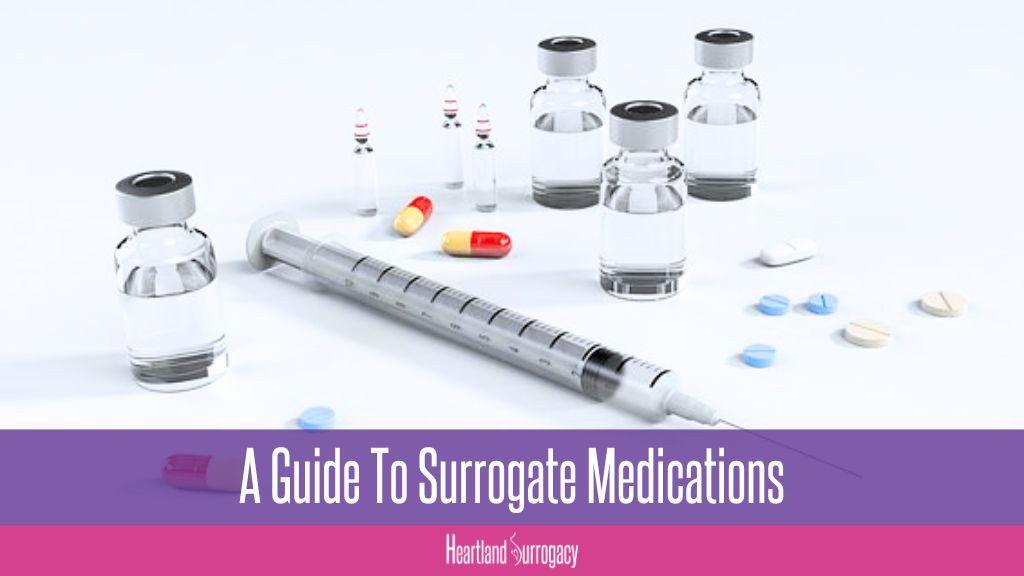Your Guide To Common Surrogate Medications
Fertility treatments in surrogacy may be confusing or overwhelming for some intended parents and surrogates embarking on their first journey. We hope the outline below of some of the medications commonly used during treatment can help our clients feel more knowledgeable and confident during the process.

Many IVF medications are not available at community drug stores and need to be ordered from a specialty pharmacy. The providers at your fertility clinic will provide you with a medication calendar, help you find a pharmacy, and will train you on the administration of the medicine. They will also describe any possible side effects; we have described some of the more common ones below.
Preparing for Embryo Transfer
Often, the surrogate starts an IVF cycle by taking birth control pills to allow doctors to control her menstrual cycle and prevent ovulation from happening in the treatment cycle. In some medication protocols, Lupron (an injectable hormone used to suppress the pituitary gland) will also be used for several weeks prior to decrease the chance of ovulation. The surrogate may also be advised to take a prenatal vitamin that contains at least 400 mg of folic acid.
The surrogate then takes hormone medication to prepare her uterus for an embryo transfer. Estrogen will be used to build the lining of the uterus and is often administered through patches or intramuscular injections. An oral antibiotic is also often prescribed to the surrogate in the days preceding the embryo transfer. In preparation for embryo transfer, a surrogate will also take progesterone, a steroid hormone that “synchronizes preparation of the uterine lining with the treatment cycle to ensure the uterus is ready for embryo implantation.”
Embryo Transfer and the Two-Week Wait
Progesterone may be administered through intramuscular injection, vaginal gel, suppository, or a pill, and is used daily, usually beginning 5 days before transfer. Progesterone use continues through week 8-12 of the pregnancy, when the placenta takes over production of progesterone.
Immediately prior to embryo transfer, some clinics offer medications such as Valium (a muscle-relaxing, anti-anxiety medication) to the surrogate. The doctor transfers the embryo(s) through a small plastic tube placed in the uterus. A blood draw performed approximately 9-14 days after the embryo transfer will measure hormone levels to confirm a pregnancy. At this time, the doctor will advise the surrogate on how long to continue progesterone and other medications during the pregnancy.
Although there are many medications involved in this process, their use is often a short-lived aspect of the surrogacy journey. Training and support from the fertility clinic can help alleviate some of the nervousness people can feel about the use and possible side effects of these drugs. Before long, our clients often find the medication stage is behind them and they are well on their way to a successful pregnancy!
